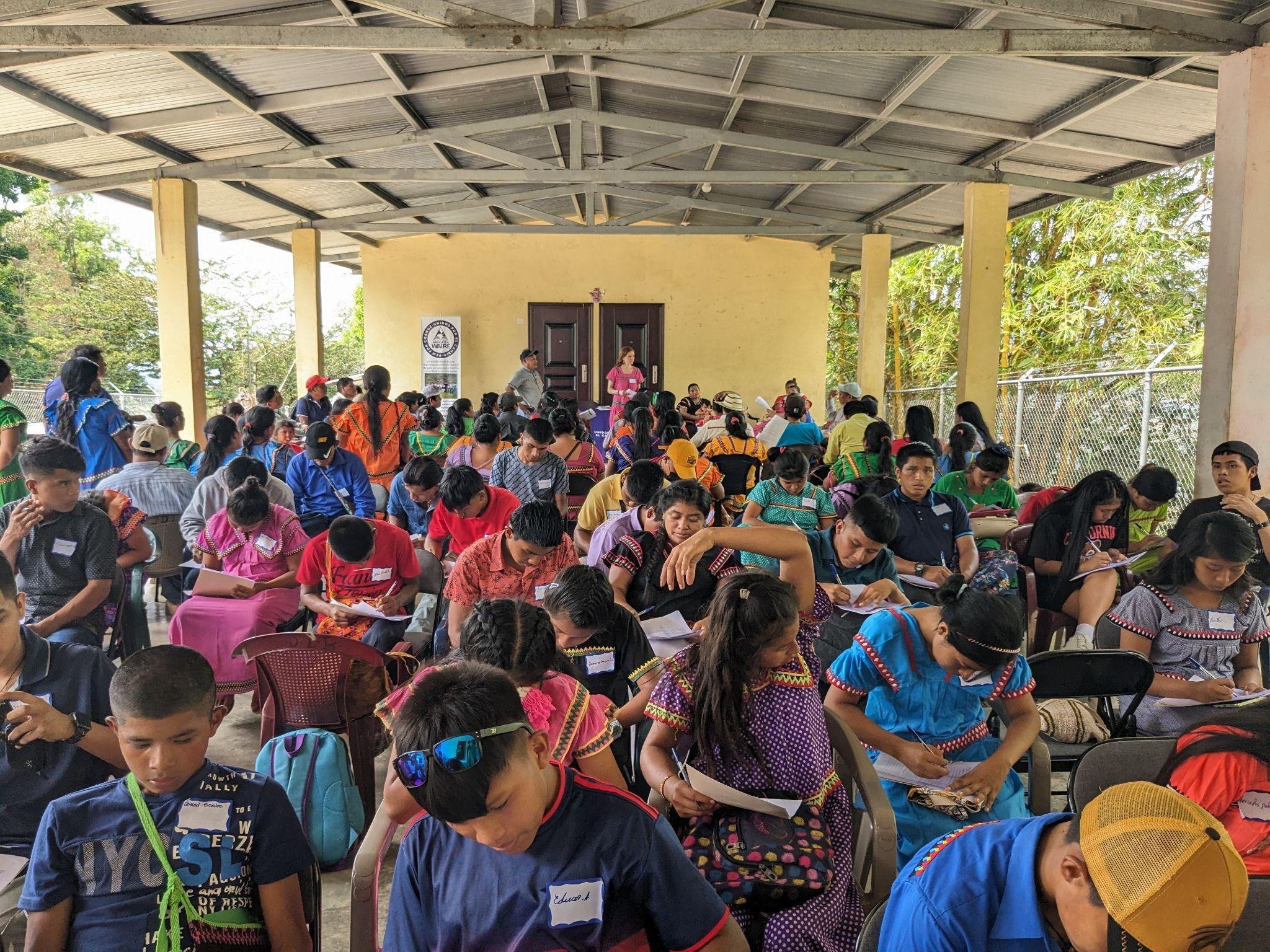When I first visited the Comarca Ngäbe-Buglé in 2008 with SIT Study Abroad, I made a friend. Yazmin was probably three or four years old when I stayed with her family in Cerro Concha, a rural part of the Comarca a forty-minute walk from the town of Quebrada Guabo, but during my short visit -- a day and a night -- she and I became fast friends.
My classmates and I were visiting the Comarca as part of a month-long series of trips throughout Panama designed to let us experience the diversity of cultures and ecosystems packed into the isthmus. Our homestays with the Ngäbe were a chance to experience a new culture and witness the extreme poverty that more than 90% of residents of the Comarca face.
When I arrived, my host parents Elena and Olmedo, Yazmin's grandparents, welcomed me to their modest home, a couple of thatched-roof buildings and a small garden plot. Olmedo gave me a quick tour of their land, explaining that it was difficult to feed his family with the yields from his small, hilly piece of land and then we sat down to dinner. I asked Olmedo a series of questions about his life and his family over dinner and I remember being struck by one of his answers. When I asked what he and his family did in their free time, he looked puzzled, thought for a moment, then said, "The women make crafts to sell in town, and we enjoy our health, when we have it." This was a man concerned about keeping his family fed and healthy, not about having fun and relaxing during free time. Since then, I've heard others in the Comarca echo Olmedo's response. Free time is a luxury that few can afford.
“The women make crafts to sell in town, and we enjoy our health, when we have it.”
My friendship with Yazmin blossomed during a late-night game of cards. We started out with simple games — Go Fish (Pescado), War (Guerra), etc. — and then moved on to more complex ones that I had never played before. Yazmin was my partner, patiently showing me the ropes and laughing at the silly "gringo" when I goofed up. Her family let her stay up late with us, playing by fire and flashlight until well after the sun had set.
Elena, Olmedo, and Yazmin welcomed me warmly into their home.
The next morning, my family surprised me with a special celebratory meal before my departure: chicken foot soup. I had never eaten a chicken foot before and was equal parts grateful and daunted as I accepted the bowl from my hosts. I sat down next to Yazmin and pondered my approach to this new gastronomical adventure. After a couple minutes, Yazmin tugged at my sleeve. "Like this," she said, grabbing her "pata de gallina" and indicating that I should follow her lead. She showed me how to gnaw at the skin and where to find the tasty morsels between bone and sinew and when we were done we licked our fingers and smiled at each other.
Not the chicken whose feet we ate for breakfast.
After our meal, I took photos with the whole family and then we said our goodbyes. I thanked Olmedo and Elena and hugged Yazmin and then turned to walk back down the path to Quebrada Guabo. I turned to look back and Yazmin was running after me, tears in her eyes. I knew then that I wouldn't ever forget Yazmin, her family, or the Comarca.
Just before we said goodbye.
My friendship with Yazmin was my inspiration for founding Few for Change with my SIT classmates. Having learned about the challenges facing the Ngäbe-Buglé during the program, meeting Yazmin inspired me to give what I could to return the generosity that her family had shown me. I wanted Yazmin, and Ngäbe girls and boys like her, to be able to stay in school, follow their dreams, and avoid the pitfalls and barriers facing so many children in the Comarca. I didn't know that I would ever see her again, but I knew that I had to find a way to help her or someone like her.
Eight years later, I returned to Quebrada Guabo with members of our board of directors for Few for Change's annual scholarship award ceremony at the office of the Ngäbe Women's Association (ASMUNG). As the ceremony was concluding, I turned to Doris Gallardo, one of our promotoras and the woman who welcomed us to Quebrada Guabo for the first time in 2008. "Doris," I asked, "do you ever hear from Señora Elena?"
"Of course," she replied. "She works right here at ASMUNG. She's right over there!"
I turned around and saw her, standing with a shy but confident-looking young girl, and my heart skipped a beat. It was Yazmin! I went over and (re)introduced myself, mentioning that I had met her when she was young. She smiled and laughed and agreed to take a photo with me, the silly gringo.
I was more than a little excited to finally be reunited with Yazmin.
Yazmin and Elena left for home, a long walk ahead of them, and I asked Doris what she knew about Yazmin. She told me that she had quite a reputation at school for being smart, hard-working, and kind to her classmates in sixth grade. "Do you think she will apply for a Few for Change Scholarship?", I asked.
"I think she will," Doris replied.
I hope that she does and I hope that we can support her as she continues to grow and pursue her dreams.
UPDATE: Yazmin did indeed apply for a scholarship in 2106 and she is now a Few for Change Scholar. You can support her studies by donating here.















